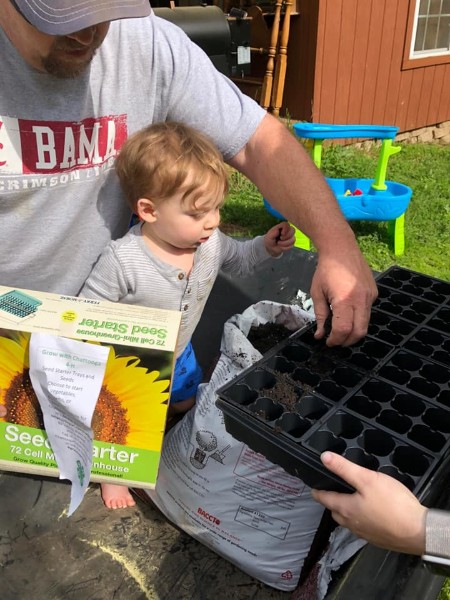Our Impact
Making A Difference in Our County
University of Georgia Cooperative Extension is working hard for its constituents. The following are examples of Extension’s impact in the county over the past year.
Home Food Preservation Series for Home Canning
Chattooga County Extension hosted food preservation workshops to meet the need for home food preservation education in their community, specifically canning food safely. Participants from multiple audiences cited significant knowledge change regarding the science-based practices needed to keep their food safe throughout the food preservation process. The classes included: Principles of Home Canning, Jams, Jellies, Preserves and other Sweet Spreads, Pressure Canning (canning of low-acid foods), and Fermentation of Canned Sauerkraut. The classes were deliveredin person and included content for each topic, a live demonstration, and hands on learning labs. 100% of participants plan to preserve food after attending the workshop. By the end of each class, 98% of participants gained knowledge in the following food preservation areas:
- When to use boiling water canner versus pressure canners - increased by 78%
- The risk associated with improper canning techniques - increased by 42%
- Products recommended and/or available for canning jars, lids, and canners - increased by 63%
- The proper way to handle canned foods during processing and storage - increased by 52%
- Where to find trusted resources on food preservation - increased by 89%.
4-H Program Addresses Vaping Awareness and Education
The Chattooga County 4-H Programs jumped into action on how to help youth understand the dangers of using electronic cigarettes. Together, they created a program that addressed the dangers of vaping for students. The program consisted of terms, statistics, videos and personal testimonies of teens that had suffered damaging effects from vaping. Many youths in the audience admitted they had vaped or were currently vaping. The goal was for the presentation to be kid friendly while delivering factual information about the damage of vaping, and convince kids of the harmful, addictiveness, and destructive damage that vaping could cause and in many cases was irreversible.
The local program presented and shared the curriculum with over 1200 students ranging from 5-12 Grade and youth development professionals from across the state with the focus being providing learning opportunities and factual evidence. The programs wanted students to understand the dangers of using nicotine products, understanding the exposure of youth to using E-Cigs (Vapes), if they would share the information they learned, and if they were more aware of the dangers of “vaping”.
- 87% indicated that they are more aware of the dangers of vaping.
- 70% indicated that they will not try vaping
- 91% of youth correctly identified 3-4 true statements about vaping/E-Cigs
- 69% indicated they have friends who vape
- 80% of students say they have seen adults vape in front of them.
- 49% said they have tried vaping or currently vape
Some participant quotes after completing the lesson,
- “I’m going to talk to my parents about the bad things that could happen”
- “I learned the difference between traditional cigarettes and E-Cigarettes”
- “We think this will cut down the use of vaping in the school building hearing the dangers from an outside source”
- “Our school did not confiscate any E-Cigs for several months, then we used videos provided to refresh their minds”
This program is only part of the solution to a widespread epidemic that continues to plague our youth and their families. While it does not take the place of parental guidance and counseling, it does serve as a starting point in tackling this national problem that’s affecting our youth.




